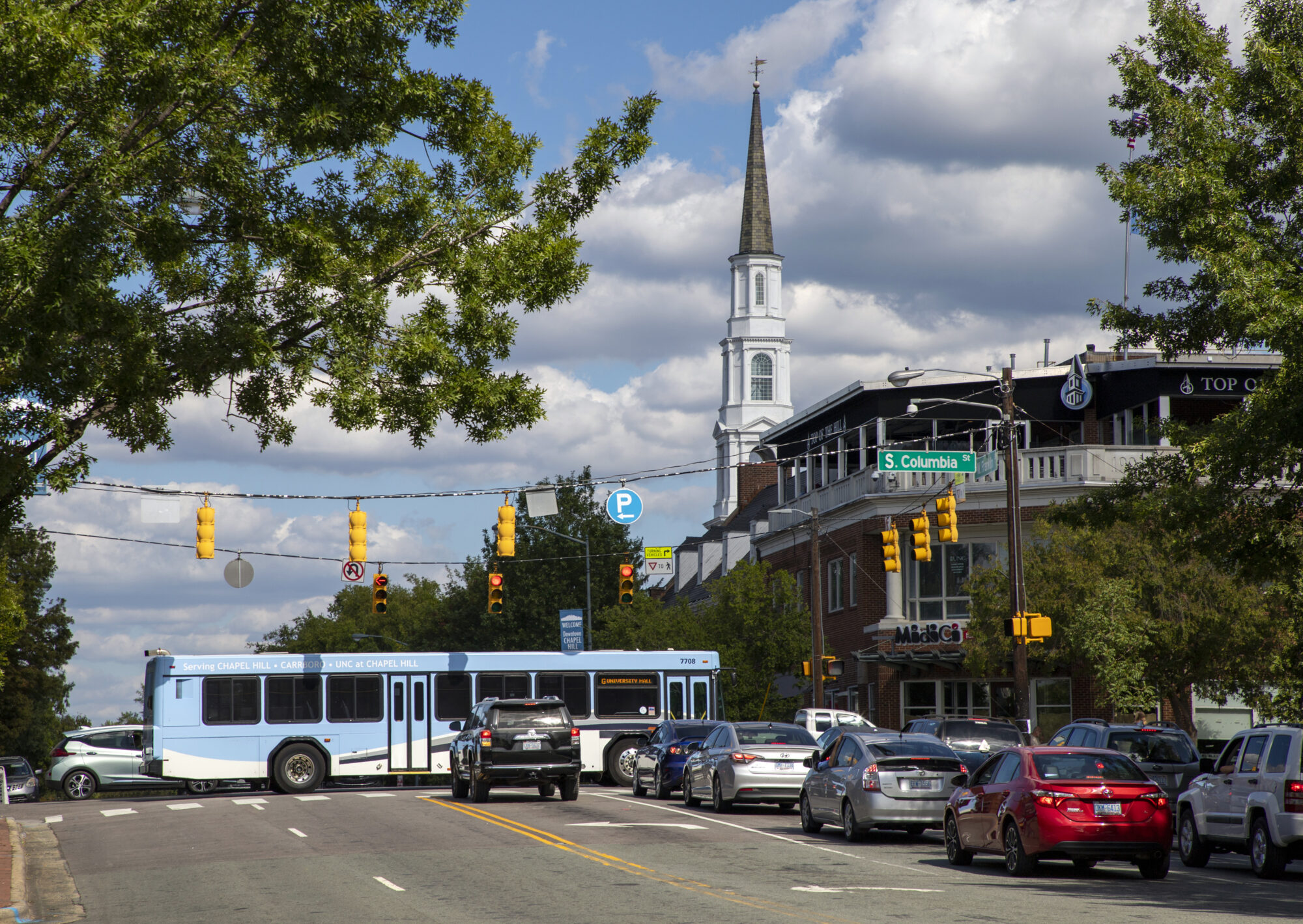What must the town of Chapel Hill do to attract more high-tech commercial business?
In the ongoing debate over local development, that’s one of the biggest questions. Chapel Hillians have long been concerned about the fact that residential property owners bear the brunt of the town’s tax burden – which can drive up the cost of living in town and force lower-income residents out. One way to shift that burden is to encourage more commercial and retail development, and there is demand for it: local economic leaders have been sounding the alarm about a growing “retail gap” in Orange County, where residents go elsewhere to spend their money because the products they want aren’t available in town. (The old saw about Chapel Hill: it’s a basketball-nuts town, but where can you actually buy a basketball?) Not all retail development is desirable, though: a Walmart might move the tax-burden dial, for instance, but big-box chains don’t always mesh with Chapel Hill’s desire to promote sustainable, labor-friendly businesses. (Or, arguably, its elitism.)
That leaves commercial development – building offices, labs and manufacturing facilities for businesses, particularly high-tech businesses in emerging industries whose values align with Chapel Hill’s. There’s demand for commercial space too: HB2 notwithstanding, the Research Triangle as a whole has developed a nationwide reputation as a technology hub, and UNC produces a steady stream of high-tech local startups. Regionally, Google Fiber is laying the infrastructure to make the Triangle a tech hub, and AT&T is laying its own fiber network in Chapel Hill as well. The only problem is a lack of space: there may be lots of high-tech businesses who want to set up shop in Chapel Hill, but where’s the commercial space to house them all?
That’s an issue town officials have been tackling for years. Chapel Hill is now home to several incubators for local startups – most notably LaUNCh and the 1789 Venture Lab, both downtown – and the town has already approved the construction of about a million square feet of commercial space. But it’s not easy: some of that construction is on hold until developers secure committed tenants, and prospective tenants generally don’t want to have to wait before moving in. In addition, UNC pharmacologist Rudy Juliano says much of that new development would consist of “dry” office space – but high-tech businesses also need “wet” laboratory space as well. And while smaller companies generally seek Class B or Class C office space, almost all new commercial development is Class A – pricier than they can afford, with more amenities than they need. (Cities like Durham have been able to avoid this problem by renovating old warehouses and other pre-existing buildings – but Chapel Hill doesn’t have as many old warehouses to retrofit.)
With all this in mind, Chapel Hill Alliance for a Livable Town (CHALT) is hosting a public forum this Tuesday, June 7, called “Nurturing High Technology Businesses in Chapel Hill.” Rudy Juliano will moderate the forum; panelists will include Michelle Bolas, UNC’s Vice Chancellor for Innovation and Entrepreneurship, as well as two UNC-based startup founders – Natalia Mitin, who decided to move her business out of Chapel Hill, and Jude Samulski, who decided to keep his business in town.
Rudy Juliano spoke last week with WCHL’s Aaron Keck.
The public forum will take place from 6-8 pm at Extraordinary Ventures on S. Elliott Road. It’s free and everyone’s invited.





